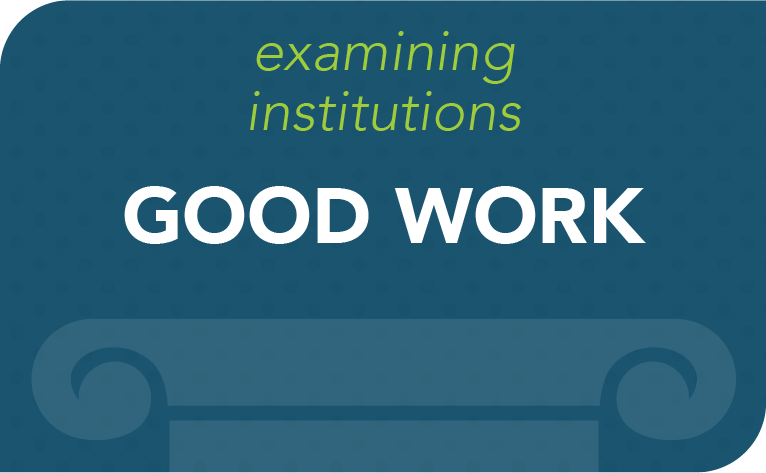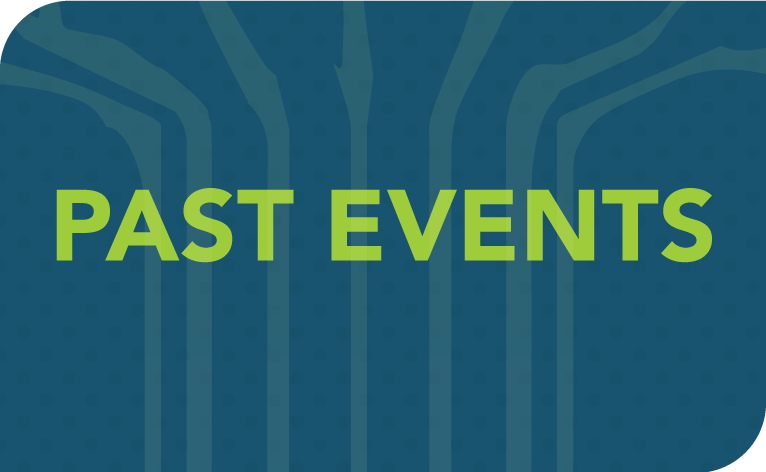
Ethics at Work: An Interdisciplinary Approach
August 2022
What would it look like for professional education to not only provide the skills necessary for technical excellence, but also prepare students to pursue meaningful, well-integrated work lives where they have the wisdom to bring the appropriate values to bear when faced with ethical challenges and emerging disruptive technologies?
This is the question that motivated Notre Dame assistant teaching professor of philosophy, Paul Blaschko, to team up with Walter Scheirer, associate professor in the Notre Dame Department of Computer Science and Engineering, and Megan Levis, a postdoctoral fellow with Notre Dame’s Technology Ethics Center. Together, they developed Ethics at Work, a project to create interdisciplinary courses that prepare students to reflectively anticipate the practical and intellectual challenges posed by the rapidly changing contemporary workplace. Last year Blaschko, Scheirer and Levis each taught Ethics at Work courses tailored to their departments.
“My class works really well for students who have already started thinking practically about what their careers might look like through their engineering courses,” said Levis, who teaches “Technology, Self and Society,” an upper level engineering seminar as part of Ethics at Work. “Last semester I had students submit podcasts as group projects in the middle and at the end of the semester, and I was blown away by the way students were connecting the questions we had considered in class to projects that they’ve worked on in other classes or internships and also to personal interactions in areas such as social media. It was cool to see the connections across their lives, and I think that goes to show the way these classes are pointing to something substantial that a lot of us are thinking about.”
Blaschko teaches an Ethics at Work philosophy class called “The Working Life.” While he emphasized that the team is using several metrics to measure the effectiveness of the courses, for him the student feedback is one of the most encouraging.
“The kind of conversations that we’re able to have with students are wonderful,” he said. “When I hear a student who is pursuing a career as a management consultant say, ‘it seems like this company that I’m thinking about working with could really promote flourishing if they did this or that thing differently,’ I feel like our mission is being accomplished.”
These courses are unique in the way that they cultivate ethical wisdom by considering broadly what it means to pursue the good, and by drawing on experts from different academic and professional backgrounds.
“One thing that’s really cool about the multidisciplinary nature of the project is that I’m able to consider issues related to technology in my class in a way I never could have otherwise,” said Blaschko, who is convinced that ethical issues related to technology are increasingly issues for people in professions outside traditional tech fields. He wants to equip students to reflectively anticipate the practical and intellectual challenges they may face as a result of technologies.
“Megan and Walter are on the frontline of the tech work stuff and then I’m really doing pretty hardcore philosophy of work, thinking about meaning and purpose and work,” he said. “It’s nice that in the various courses there’s kind of a community behind it, where we can draw on the expertise and experience of the various people that are involved.”
Walter Scheirer teaches “Ethical and Professional Issues” in the Computer Science department. The three pilot Ethics at Work courses ranged in size from 20 to 90 students, and they all were filled within minutes of registration opening. In response to demand from students, and support from the university, the Ethics at Work program is expanding to other fields, and is producing resources for faculty at Notre Dame and other institutions.
“We’re creating videos and curricula that can be used in courses and supporting research to inform the ways that people teach,” Blaschko said. Questions of meaning, purpose and values at work transcend professions, and they find that a cross-professional approach enriches all the fields.
“I think, at least in my experience, my best teaching happens when I have an intellectual community that I can go back to and get really excited about what we’re doing with the students,” Blaschko said. “And so it is wonderful to have this core group and have other faculty that are coming in. As we learn from each other and generate curricula together, the students see professors who are doing this because they’re passionate about it and because they love it, and the students respond really well to that.”






